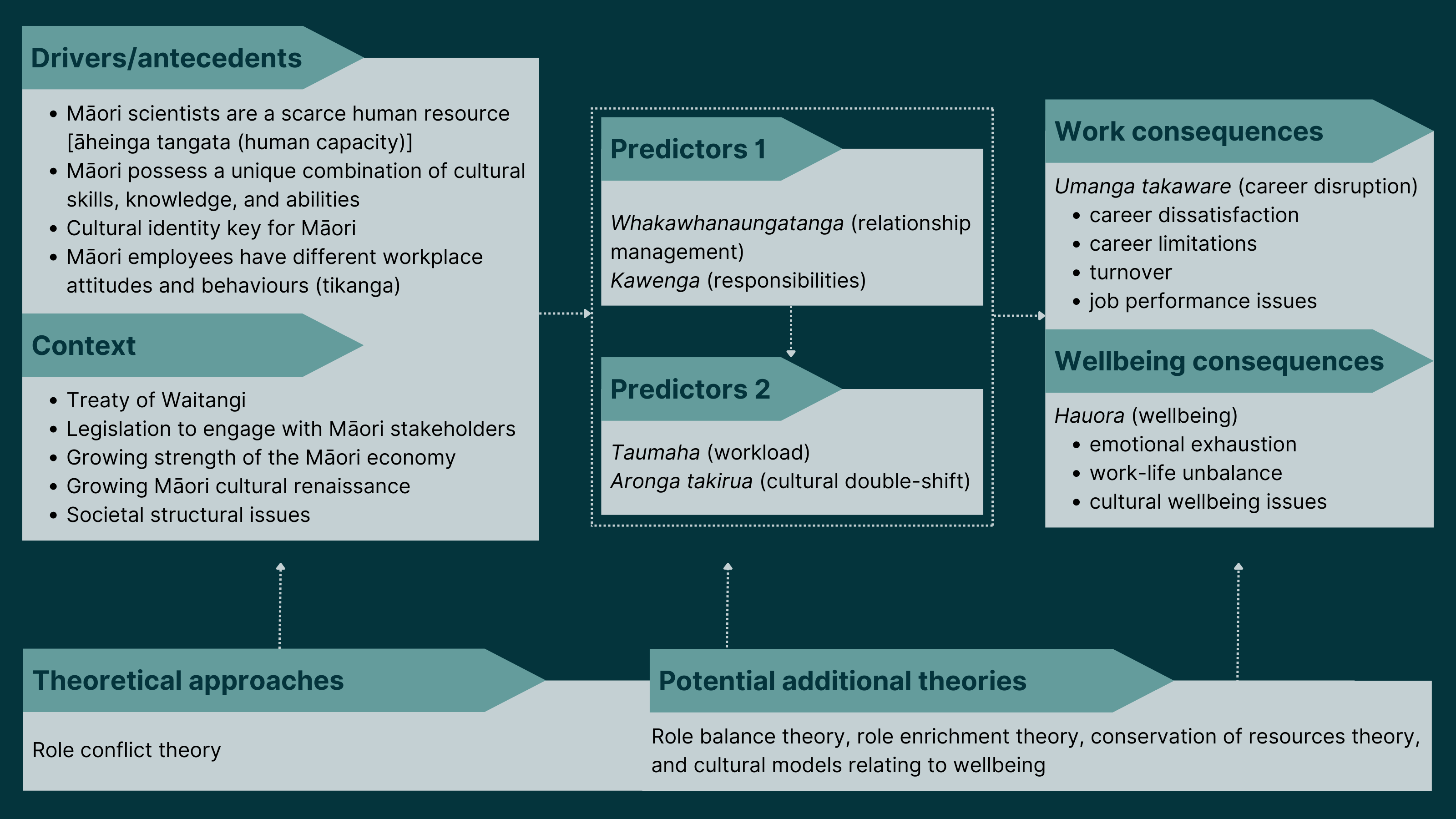Aronga takirua and hauora
Māori scientists are experiencing burnout because of the burden that is placed on them to provide their expertise on mātauranga Māori.

Employers value wellbeing in the workplace
Many employers are starting to understand how important it is to ensure their employees' wellbeing in the workplace. This can include physical and mental health, as well as work-life balance and job satisfaction.
One wellbeing issue at the forefront of many discussions is burnout, a state of emotional, physical, and mental exhaustion caused by prolonged stress and overworking. It can lead to feelings of detachment, cynicism, and a reduced sense of accomplishment, and it can have serious negative effects on a person's overall wellbeing.
Prolonged stress and overworking can be caused by various factors such as job insecurity, poor work-life balance, and excessive workload.
Māori scientists are in high demand for their expertise
Indigenous philosophy and practice offer many insights into contemporary management thinking. However, the burden to provide this knowledge and uphold these relationships primarily falls on indigenous employees.
In the context of Aotearoa New Zealand’s science sector, the indigenous population plays a unique role because of the national legislative obligation to engage with Māori in science and innovation. This policy, known as Vision Mātauranga, seeks to unlock the innovation potential of Māori knowledge, resources, and people.
While this policy is beneficial for engagement with Māori communities and stakeholders, it creates a unique environment for Māori employees where there is heightened pressure and increased workload.
This high demand is creating burnout
This growing pressure on Māori scientists to provide their expertise on Mātauranga Māori contributes to burnout. Researchers Jarrod Haar and William-John Martin found evidence that the hauora (wellbeing) of Māori scientists is being detrimentally impacted by these additional cultural obligations.
Wellbeing issues are a consequence of aronga takirua
Detrimental effects on the hauora of Māori researchers is one component of this research that highlights how Māori scientists work in multiple roles with a dual focus (Western and Māori). Many refer to this as ‘double labour’. However, it is more than just labour, aronga takirua or cultural double-shift also captures the cultural drivers, with these drivers and consequences of aronga takirua or cultural double-shift outlined in this model.

See these articles for more information

The cultural double shift of Māori scientists
For indigenous employees, cultural identity can lead to critical issues around workload and pressures.

HRM counteracting aronga takirua
Human resource managers can counteract the detrimental effects of aronga takirua (cultural double shift) on Māori scientists.

Pākehā intermediaries in Māori research
Exploring the impact of Pākehā intermediaries in Māori-focused research and innovation.
